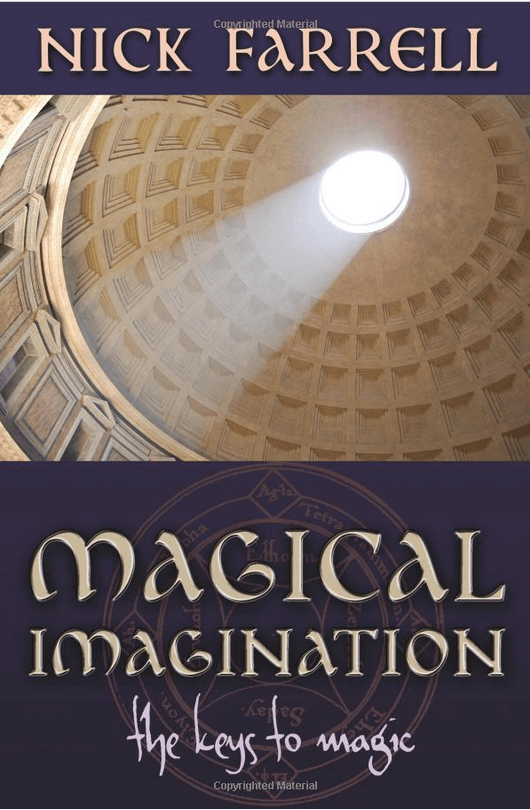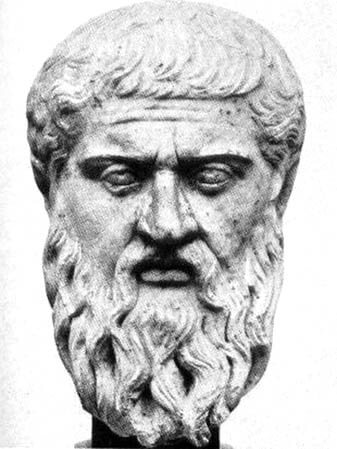Humans are extremely bad at learning from the past, yet at the same time they cling onto concepts which are long out-of-date. This is caused by the way we learn.
For evolutionary reasons humans had to learn a lot of things very quickly and our brains are hardwired to accept the first idea we are told from a “perceived authority” without question. This is logical as we do not want to distrust everything and most things we will need to understand the first time. Besides much of what we learn will not be used again for some time.
When a solution turns out to be wrong it takes effort to remove it. This why we often continue to believe things which are not true, even when intellectually we can see it is rubbish.
What is more dangerous is that we make associations based on these unchallenged false premises and build up complex association patterns of belief around them.
In my book Magical Imagination I use the example from my childhood.
I was a child a Christian teacher told me that they had found chariot wheels in the Red Sea and this proved that Moses had crossed it, closing it on Pharoah’s chariots. It was an important point for me because this little bit of knowledge covered all manner of flaws in fundamental Christian philosophy. The information was given by someone whom I deeply respected as a teacher and who at the age of 11 was a role model for me. I reasoned that if Pharoah’s chariots had been found then Moses had a fixed place in history and there was an obvious element of literal truth in Bible stories. Through-out my teens I carried this ‘literal’ image of biblical history and its obvious association with the literal theology of fundamental Christianity.
All was well until my interest in Ancient History turned towards archaeology in the Biblical period and I discovered that the chariot wheel statement was complete fiction. My universe was shattered. Everything that I had been told by this teacher was now in doubt. I applied research to everything that I had accepted as fact and found it wanting, finally abandoning fundamentalist Christianity entirely in favour of a personal revelation. Some years later I found a friend from that period of my life to whom that brand Christianity remained important. He asked me why I had ‘abandoned my faith’ and was told about the teacher and the chariot wheels. He looked at me as if I was stupid. But they have found chariot wheels in the Red Sea,” he said.
Initially he thought he had read it somewhere, but like me he was able to trail the information to the same teaching session. Unlike me, the information did not break his faith.
Occultism’s main problem is one of baggage. Over the years so much has been added to it, particularly in the 19th century which probably did not need to be there. Ideas which were shoved under the bonnet of Western Magic do not really need to be there. However they remain and people managed to get extremely obsessed with them.
Regular readers will know that I am not that impressed with incorporating Eastern ideas like Karma and re-incarnation. This happened in the 19th century and in my view blinded Dion Fortune’s tradition completely. Fortune was a truly great magician but her system spends a lot of its time trying to drag past life magical information out of Atlantis. It is not her fault, in fact in her books she warned against it, but side issues such as Lord of Karma and other necessary inner plane autocracies needed to prop them up, are a strong feature of her work.
So how do we know what is good and what isn’t and how do we get rid of past baggage?
The Western Mystery Tradition is bedrocked in Plato. You would not really know it, because few modern magicians can be bothered studying philosophy. (Get your paws on a used copy of Understanding Plato, by David Melling and you will see how much).
Plato learned a technique from his teacher Socrates which was designed to weed out rubbish from philosophy and get to the heart of the truth.
The Socratic method looks at commonly held truths that shape beliefs, and looks at them alongside other ideas. It does this by forming a system of questions as logical tests.
Elenchus, as it is called, is also a feature of Jewish belief and is one of the things that is seen that keeps it from getting silly. If you have to argue your religious ideas before those who are also capable of ripping your logic to bits, you tend to think before you speak.
The first stage is to take an idea that you have about magic, occultism or anything and make it into a thesis. Then you see similar ideas are also true and finally if any of these ideas negate your original thesis (this is similar to the scientific method).
To do this you look at the implications of your ideas and see how they will affect other concepts. For example, my simple chariot wheels in the Red Sea concept was the heart of a belief which said the Bible is literally true. If I dismissed the “archaeological evidence,” then I was also saying that “the Bible is not the perfect word of God.” The Red Sea chariot wheels was easy to disprove, therefore I had to look at a more important thought about how I saw the Bible.
But that is only looking at part of the Socratic method. If you pull apart your ideas ruthlessly and carefully you will finally come to a point where your pre-conceptions give way and you have to admit that whatever you were told about a subject was wrong. In other words you are ignorant.
From this position of ignorance you can actually find out the answer (if one truly exists). Ignoring for a moment that Socrates believed in a concept of re-incarnation lets apply his method to looking at that question. A is the holder of the belief and B is “Socrates.”
A: Reincarnation exists because I can remember past lives.
B: How many lives can you remember?
A: About half a dozen.
B: How much of this life can you remember?
A: Pretty much all of it.
B: Can you remember pretty much all of your other lives?
A: No, only flashes of important moments. Some lives more than others.
B: Do these memories feel like the memories of your current life?
A: They sometimes feel more intense.
B: So it is fair to say that you remember incidents of previously lives which were important or emotionally intense?
A: Yes.
B: So a future you is going to remember only the important or emotionally intense parts of this one?
A: I guess so.
B: So those lives you don’t remember, they are dull and had nothing happen?
A: That would be a good explanation.
B: So what happens when you remember anything?
A: Like anything I think about it and a memory appears in my head.
B: So how is a memory different from a daydream?
A: That is easy, it has emotion and a feeling of reality.
B: So when you work with Gods, Angels or dead spirits what do they feel like?
A: Actually they are the same. I see an image and it is packed with emotion and power.
B: So would you say then that your ritual and pathworking experience is memory?
A: No it is happening now.
B: If you feel an emotional experience now is that a memory?
A: No.
B: So it is fair to say that there are circumstances in the current moment which feel the same as your past life memories.
A: Yes.
B: So these “past life memories” could be actually a response to what you are experiencing now.
A: But no they are memories of the past.
B: But they equally act in the same way as psychic experiences, or memories of the present. So “being in the past” is not a pre-requisite for you having them.
A: mmmm
B: In fact the debate has suggested that past-lives could be explained by other magical methods that have nothing to do with re-incarnation.
A: I suppose
B: So the existence of re-incarnation cannot be dependent on you remembering past lives.
If it exists it would have to be proved by another reason.
By applying these sorts of methods and reasoning (plus Occam’s razor) to magic and occultism we can free it from all the sorts of baggage that has trapped it.
This includes an over dependence on ideas which come from a particular source. One of the things you learn very quickly is that Bardon, Mathers, Westcott, Crowley are no more authorities is as you are. This is marvellously liberating as you move closer to your own idea of Truth rather than someone else’s. From there you can experience what is rather than what someone else thinks should be there.


